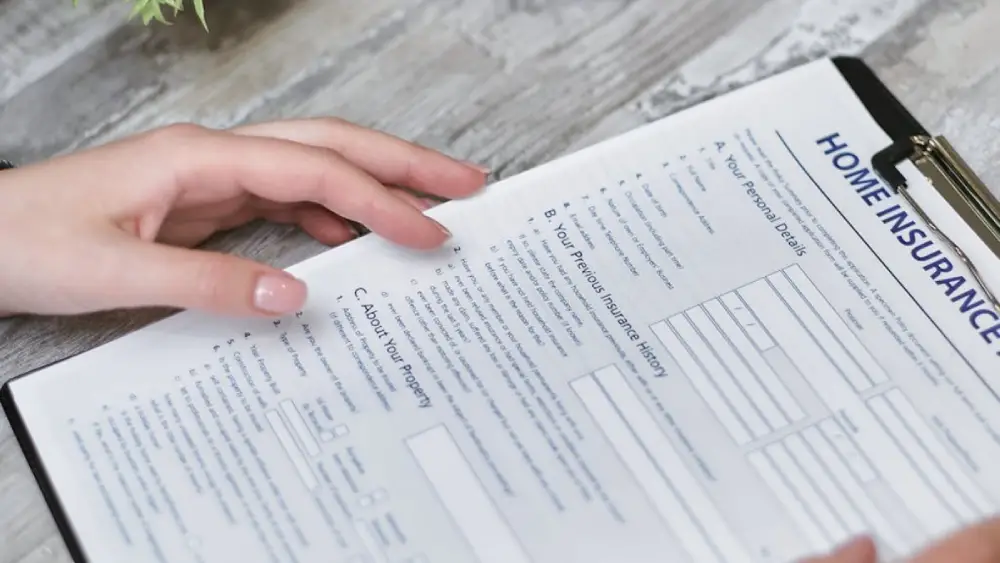Owning a home is a significant investment, and protecting that investment is crucial. That’s where homeowners insurance comes into play. It’s not just a formality; it’s a safeguard against unforeseen events that could otherwise leave you financially devastated. So, let’s dive into the world of homeowners insurance and understand its intricacies.
Understanding the Basics
What is Homeowners Insurance?
Homeowners insurance is a type of property insurance that covers losses and damages to an individual’s house and assets within the home. It also provides liability coverage against accidents in the home or on the property.

Importance of Homeowners Insurance
Why is it essential? Well, imagine your house gets damaged in a fire, or a burglar makes off with your valuables. Without homeowners insurance, you’d have to bear the entire cost of repairs or replacements out of pocket. That’s a financial burden most people can’t handle comfortably.
Key Components of a Homeowners Policy
Your homeowners insurance policy is like a multi-tool, with various components designed to protect different aspects of your home and life.
- Dwelling: This covers the structure of your home itself – the walls, roof, and any attached structures.
- Personal Property: Think of everything inside your home – furniture, electronics, clothing. This component covers those items if they are damaged or stolen.
- Liability: If someone gets injured on your property, this part of your policy can cover legal and medical expenses.
- Additional Living Expenses (ALE): If your home becomes uninhabitable due to a covered event, ALE can help pay for temporary housing and other related expenses.
How Homeowners Insurance Works
Homeowners insurance works by pooling the risk among many policyholders. You pay a premium, and in return, the insurance company agrees to cover specific losses. If something happens that’s covered by your policy, you file a claim, and the insurance company pays out according to the terms of your policy.
Claims Process
Filing a claim can seem daunting, but it’s straightforward:
- Notify your insurance company about the loss or damage.
- Fill out the necessary claim forms.
- An adjuster may come to assess the damage.
- Submit any required documentation.
- Once approved, you receive payment for your claim.
Deductibles Explained
A deductible is the amount you pay out of pocket before your insurance kicks in. For instance, if your deductible is $500 and your claim is for $2,000, you’ll pay the first $500, and your insurance will cover the remaining $1,500.
Factors Affecting Insurance Premiums
Several factors influence your insurance premiums, including:
- Location: Homes in areas prone to natural disasters may have higher premiums.
- Home Value: The higher the value of your home and its contents, the higher the premium.
- Coverage Amount: More coverage means higher premiums.
- Deductible Amount: A higher deductible usually lowers your premium.
- Claims History: Frequent claims can increase your premiums.
Coverages and Exclusions
Common Perils Covered
Homeowners insurance typically covers events like:
- Fire and smoke damage
- Theft
- Vandalism
- Storm damage (wind, hail)
- Water damage (from burst pipes, not floods)
Understanding Policy Limits and Deductibles
Policy limits are the maximum amounts your insurance will pay for a covered loss. It’s crucial to understand these limits and ensure they’re adequate to cover your potential losses.
What’s Not Covered
Standard homeowners insurance usually doesn’t cover:
- Flood damage
- Earthquake damage
- Routine maintenance issues
- Sewer backups
- Mold
Importance of Additional Coverage (Riders)
Sometimes, basic coverage isn’t enough. Riders or endorsements can provide additional coverage for things like expensive jewelry, art, or home businesses.
Differentiating Between Homeowners and Renters Insurance
While homeowners insurance covers the building and personal property, renters insurance primarily covers personal property and liability, not the structure itself.
Choosing the Right Policy
Factors to Consider When Selecting a Policy
When choosing a policy, consider:
- Coverage needs: Ensure the policy covers your home’s value and your belongings.
- Price: Compare premiums but also look at deductibles and coverage limits.
- Reputation: Research the insurance company’s reputation for customer service and claim handling.
How to Get Quotes and Compare Policies
Get quotes from multiple insurers, compare coverage options, and don’t be afraid to ask questions. Many companies offer online tools to help with comparisons.
Importance of Reading the Policy Carefully
It’s tempting to skim through your policy, but understanding the details can prevent unpleasant surprises during a claim. Know what’s covered, what’s not, and your responsibilities.
Tips for Homeowners
Preventing Claims and Reducing Premiums
Proactive measures can help prevent claims and lower your premiums. Regular maintenance, installing security systems, and upgrading old plumbing or electrical systems are good steps.
Home Maintenance Tips
Routine maintenance like cleaning gutters, inspecting roofs, and servicing HVAC systems can prevent costly damage.
Security Measures
Installing smoke detectors, security cameras, and alarm systems can protect your home and may even reduce your premiums.
Documentation of Belongings
Keep an inventory of your possessions, including photos and receipts. This can simplify the claims process if something gets damaged or stolen.
Understanding Common Insurance Myths
Don’t fall for common myths like thinking all types of water damage are covered or believing that market value is the same as replacement cost.
Importance of Regular Policy Review
Life changes, and so do your insurance needs. Review your policy annually to ensure it still meets your requirements.
Conclusion
Homeowners insurance is more than just a policy; it’s peace of mind. Understanding the details can help you choose the right coverage and protect your investment. Don’t wait for disaster to strike – get informed, get insured, and rest easy knowing your home is protected.
FAQs
The best homeowners insurance depends on your specific needs. Look for comprehensive coverage, reasonable premiums, and excellent customer service. Comparing multiple providers is essential.
To get cheaper insurance, consider raising your deductible, bundling with other policies, installing safety features, and maintaining a good credit score.
It typically covers dwelling, personal property, liability, and additional living expenses due to events like fire, theft, and storms.
Regular reviews ensure your coverage remains adequate as your circumstances change, helping to avoid gaps or overpaying for unnecessary coverage.
Notify your insurer, complete claim forms, provide necessary documentation, and cooperate with the adjuster. Following these steps ensures a smoother claims process.

2 thoughts on “Understanding Homeowners Insurance: A Comprehensive Guide”